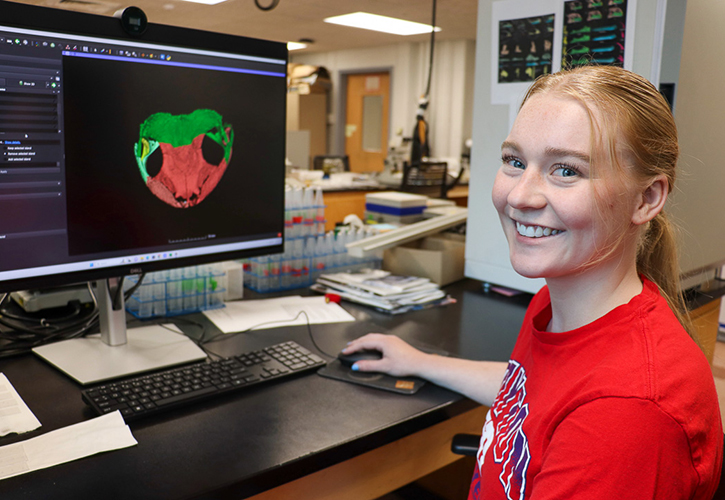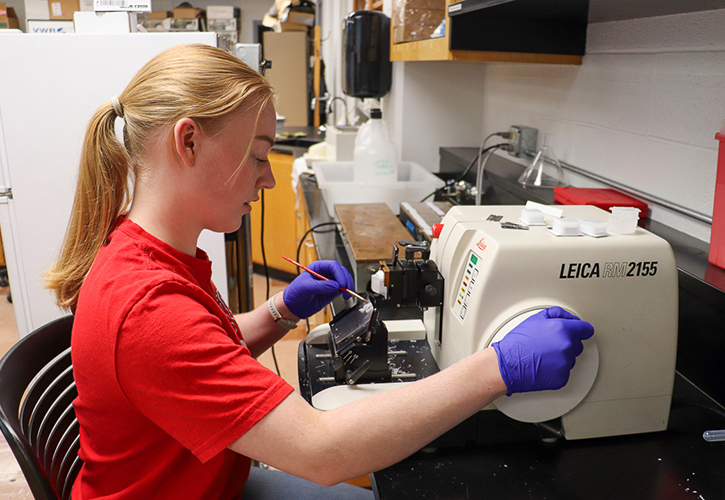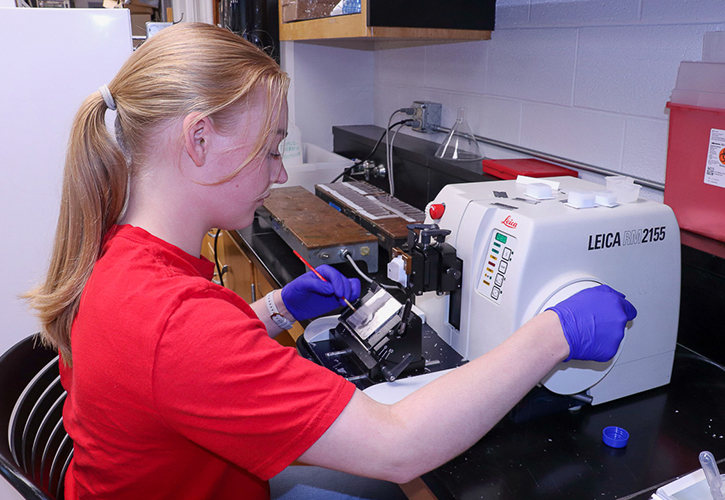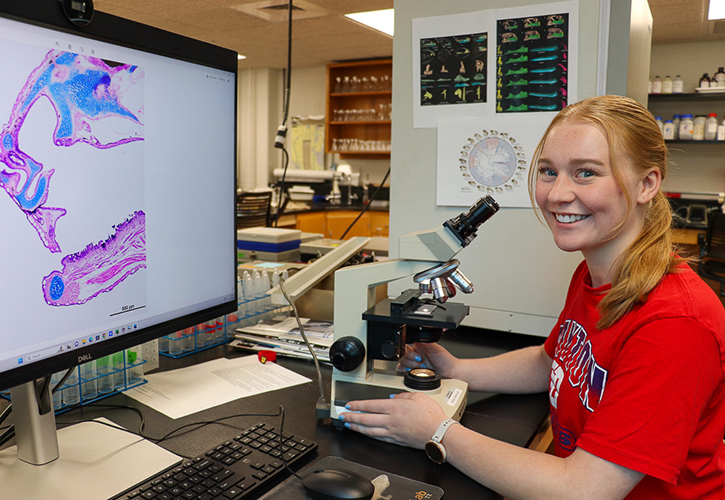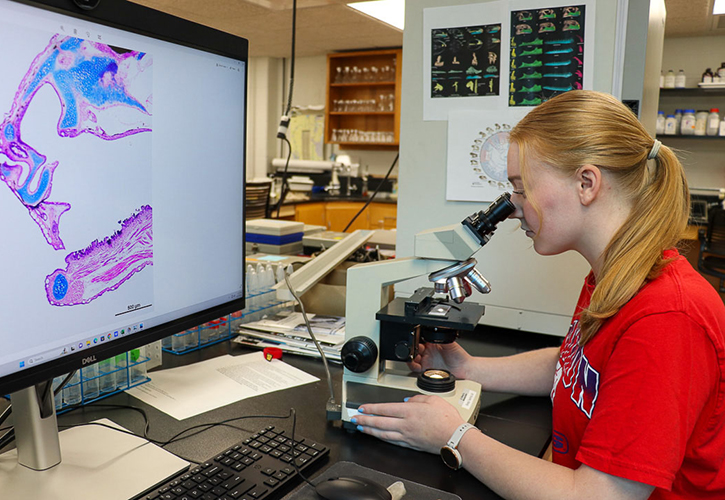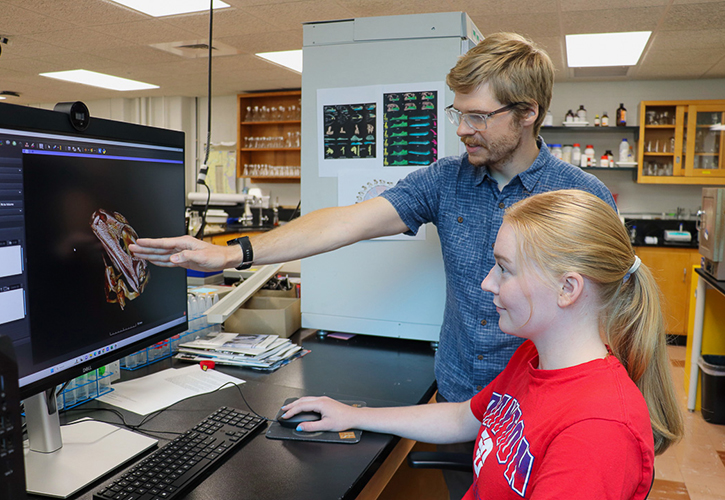College of Arts and Sciences Newsroom
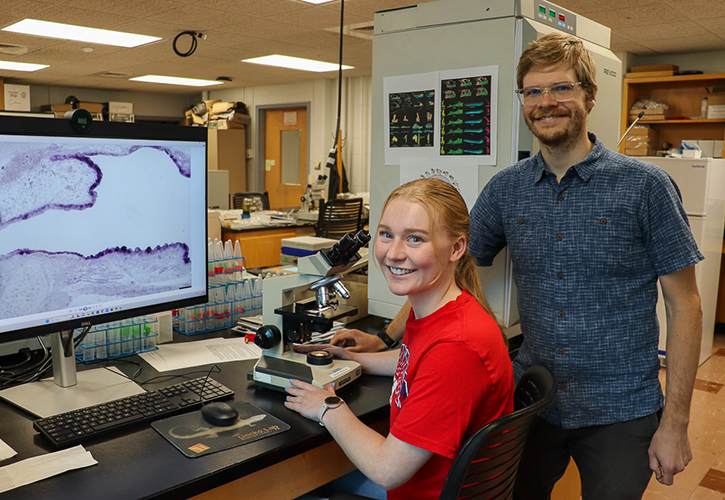
UD biology student studies frog teeth evolution in faculty-mentored research project
By Lucy Waskiewicz ’24
College students know senior year means hours spent working toward the future. However, for University of Dayton senior Madeline Brinkman, working toward the future meant first diving millions of years into the past.
Brinkman, a biology major from Lima, Ohio, studied developmental evidence for the re-evolution of frog teeth through the College of Arts and Sciences Dean’s Summer Fellowship program, which provides opportunities for students to collaborate with a faculty mentor during the summer on an original research project.
The basis for Brinkman’s research began more than 200 million years ago when the ancestors of living frogs lost teeth on their lower jaw. According to a biological principle called Dollo’s Law, this evolutionary loss is irreversible.
However, a single species of frog has redeveloped lower jaw teeth, proving an exception to the rule.
To better understand the complex processes behind the evolutionary loss and return of traits, Brinkman worked with Daniel Paluh, assistant professor in UD’s Department of Biology, to study the presence and absence of evidence for the re-evolution of teeth in the developing lower jaw of a second frog species — the Cuban tree frog.
For Brinkman, who is applying to dental school, her summer fellowship provided the ideal blend of lab experience and pertinent information.
“This research was perfect for me because, while I got to study an interesting organism, the work was also relevant to what I want to do post-grad,” Brinkman said. “Some of the frog genes we looked at are expressed in humans too, like in cases where human teeth don’t develop properly. So getting exposure to that and making those connections was very cool.”
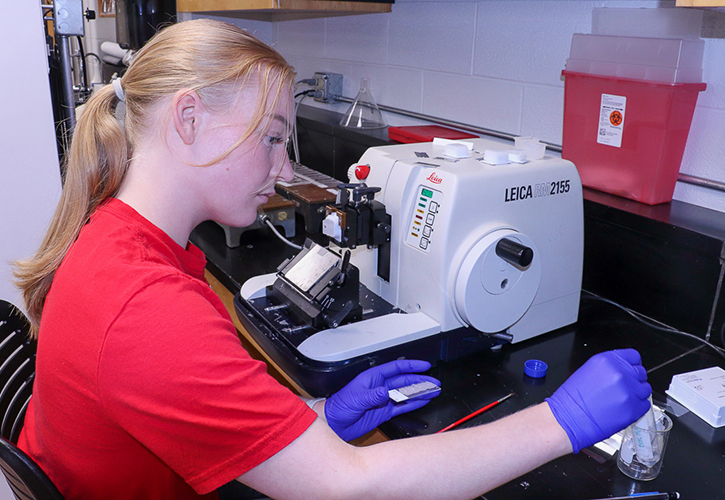
The fellowship was Brinkman’s first research experience outside class. Paluh said she swiftly picked up skills to perform successfully in his lab. For example, Brinkman learned how to use an instrument called a rotary microtome to cut organism samples, such as tadpole jaws, into slices eight micrometers thin for microscope observation and experimentation.
“Madeline is highly motivated, hard-working and quickly became skilled at histological sectioning, molecular biology techniques and microscopic imaging to investigate the developmental genetics of frog teeth,” Paluh said. “She is determined to become a dentist, and our work is filling a large gap in the understanding of vertebrate dental evolution.”
Brinkman said Paluh has remained a mentor beyond the summer and is helping guide her through graduate school applications.
Paluh, who joined the biology department’s tenure-track faculty in 2023, said many factors drew him to UD.
“I was thrilled to join the biology department because of the highly collaborative and supportive atmosphere, the exceptional opportunities for substantive student research and the emphasis of hands-on, experiential learning inside and outside the classroom,” Paluh said.
Paluh received a National Science Foundation’s Postdoctoral Fellowship in Biology in 2021, which supports postdoctoral fellows in specific areas of the life sciences. Paluh said the $138,000 grant launched the research he is continuing at UD.
“This fellowship kick-started our understanding of the ecology, evolution and development of amphibian teeth, and my research program at UD will continue to unravel patterns of vertebrate trait diversity,” Paluh said.
Brinkman said Paluh’s mentorship and devotion to his field were instrumental in acquainting her with the research process.
“He made sure that I was doing things that piqued my interest while also leading me in the right direction and teaching me things you need to do to be successful in a lab,” she said. “He’s very knowledgeable and passionate about his field. It's contagious and made me want to work harder.”
Brinkman plans to present her research April 18 at the Brother Joseph W. Stander Symposium, which provides hundreds of UD undergraduate and graduate students with opportunities to showcase their research projects. She looks forward to sharing her work with Paluh with the UD community.
“The most rewarding part of the summer was toward the end, when I was putting together a research paper, because I got to see all that I focused on come together and get the full picture of everything I did in the lab,” Brinkman said. “I think presenting it at Stander will be even more rewarding — putting the research into words and communicating our work with others.”
For more information, visit the Department of Biology website.

